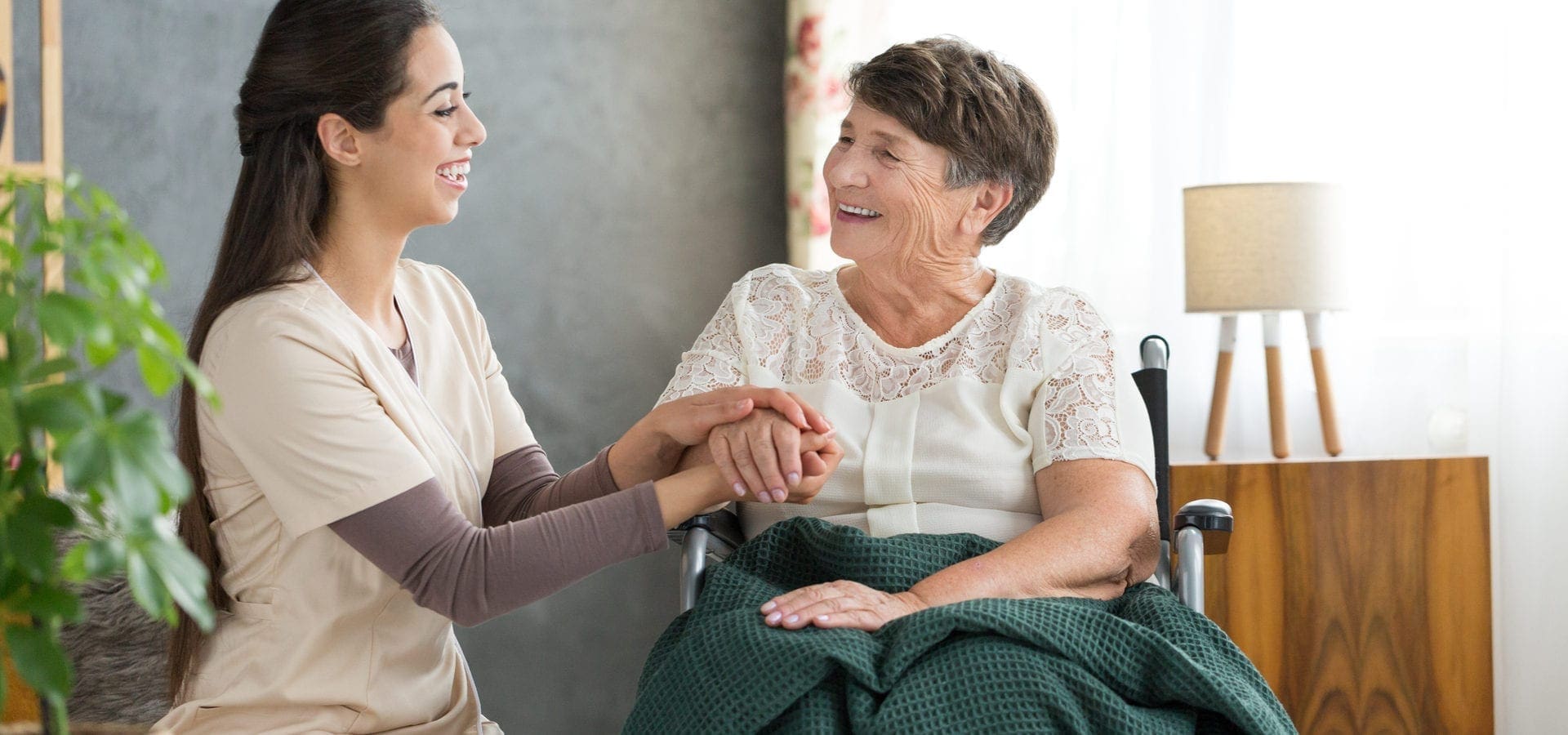You’ve gone through the matching process and chosen an in-home caregiver that seems right for your parent or spouse. Now it’s time for him or her to arrive for their first day on the job. It’s normal for everyone—you, your loved one and the caregiver—to have butterflies and questions. About Care Home Care knows that you’ve chosen an in-home caregiver to keep your loved one in the comfort of their own home, so keep these tips in mind to help your loved one seamlessly transition into life with their first caregiver.
Introduce the New Caregiver
You’ve probably already met the caregiver before their official first day, so remind your parent or spouse and talk a little bit about them to prepare and get your loved one excited about their arrival. For people with memory issues, it may be helpful to start having this conversation a few weeks before the caregiver’s arrival.
On the first day, make both your loved one and the caregiver feel comfortable. Re-introduce the caregiver to your loved one and go over what they are there for. Show them the home and point out areas the caregiver will be in frequently, such as the bathroom if they’ll be helping your loved one bathe or the kitchen and location of cooking supplies if they’ll be helping prepare meals. This is the time to get yours and your loved one’s questions answered so you can all start off on the right foot.
Educate on Rules and Routines
Everyone lives differently and has varying rules and customs in their home. Don’t be shy about going over these preferences with your loved one’s new caregiver. Does your mom prefer to leave the TV on a certain channel while she naps? Do you enforce a strict no-shoes rule in the house? Does your parent shower at night or in the morning? These may seem small, but every little effort can help to make your loved one feel most comfortable with their first caregiver. It can really make a difference and help the caregiver integrate more easily into your loved one’s life.
Understand that acclimating a new person into your loved one’s daily or weekly routine doesn’t just happen overnight. On average, it usually takes around four weeks for everyone to feel comfortable and get into the right rhythm and schedule with a new caregiver. Make a list of customs and behaviors that the caregiver should know about and don’t be afraid to update and add to the list. It’s a two-way street to make sure everyone is acclimated to this new way of living.
Prepare Space
Before your new caregiver arrives, prepare the home for them to have adequate space to perform their job. If your loved one needs help getting in and out of the bathtub, make sure the bathroom is free of clutter and has plenty of space. Go through your loved one’s house to fix any areas that may make the caregiver’s job more difficult, such as cleaning up a cluttered walkway to allow room for the caregiver to push your loved one’s wheelchair.
Whether your loved one’s caregiver is providing 24-hour support or just visits for a few hours, you should also establish a place for them to store their things. For an overnight caregiver, you’ll need to provide the basic essentials for getting a good night’s sleep. Daytime caregivers should have a designated area to store their day bag and anything else they may bring.
Keep Open Communication
Communication will be the most important thing in successfully integrating your first caregiver into yours and your loved one’s lives. Determine the best way of communicating, whether that’s through phone calls or a calendar and notebook hung on the fridge. Additionally, try and paint a larger picture of your loved one than just the tasks the caregiver will be doing. Communicate who your loved one is, what they did in the past, what they like and don’t like. The first day the caregiver meets your loved one, they will see a different version than the person that you know. Your loved one may have physical or memory problems and the caregiver hasn’t known your loved one as long as you have. Help to bridge that gap so your family member and caregiver can establish a trusting and beneficial relationship. Consistently give feedback to the caregiver and encourage your loved one to speak up about what they like and don’t like, so you are all on the same page and your loved one gets the most out of having a caregiver.
About Care Home Care is here to help match your loved one with the perfect caregiver for their needs and lifestyle. We spend time screening for the best caregivers and preparing a thorough plan before the caregiver ever steps into your home, so you can focus on establishing that bond between your loved one and their new caregiver. Learn more about our caregivers and why we’re trusted by so many families in the Phoenix area and schedule a free assessment to get your loved one the quality care they deserve.
